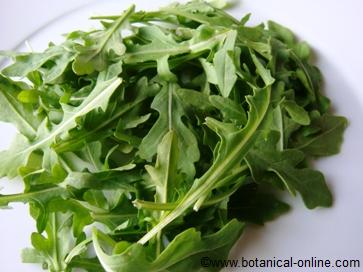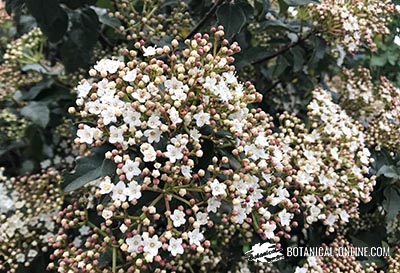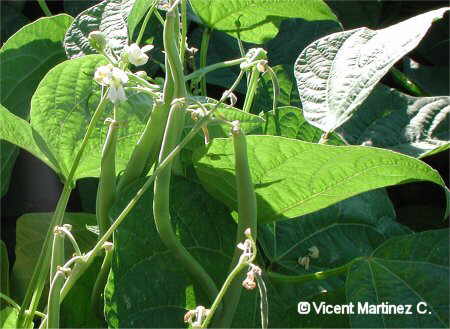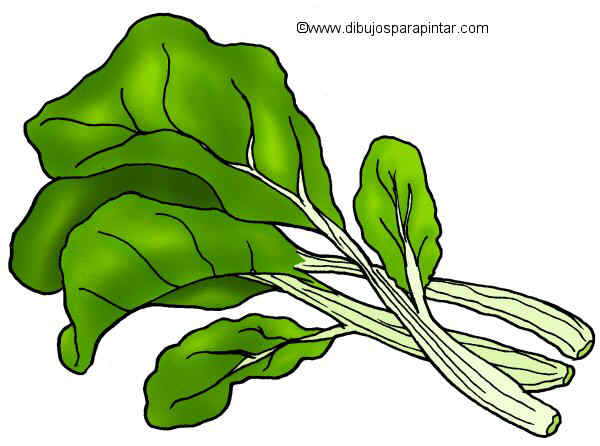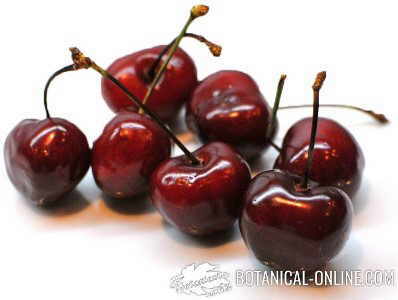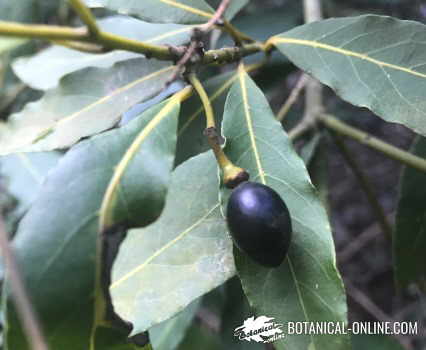Contents
MULBERRIES AS FOOD
What are mulberries (Morus nigra)?
Mulberries are the fruits of mulberries. They may come from the black mulberry (Morus nigra), or from the white mulberry (Morus alba).
The fruits are pale when they are not ripe, then have a reddish color and finally, when they can be eaten, they are black (in the case of black mulberry) or violet (in the case of white mulberry).
The fruit should not be confused with blackberries, the fruits of the blackberry (Rubus spp.)
Mulberry is a tree of oriental origin, used in Chinese medicine, but cultivated in the Mediterranean region since the time of Dioscorides, such as it appears in his treatises.
It is currently cultivated as an ornamental tree in gardens and avenues around the world.
How do you eat blackberries?
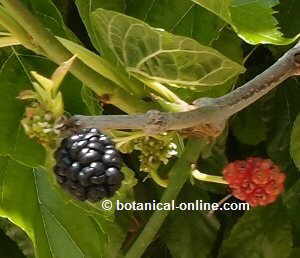 Photo of black mulberries (Morus nigra). The fruits are red, and, when they ripen, they are black.
Photo of black mulberries (Morus nigra). The fruits are red, and, when they ripen, they are black.In summer, mulberry is loaded with blackberries in a great way, and these mature between July and September.
It is necessary to choose the ripe fruits, because they are very delicate, and before their maturity they are very bitter, but if they are past of maturity, quickly they undergo fermentations and they have bad state. The months of consumption are between the end of August and September.
Blackberries have a sweet and slightly acidic flavor, which makes them very appetizing and refreshing. These fruits are the edible part of the plant. They can be eaten raw or cooked, in preserves and jams.
It is said that the berries of the older trees, are better of flavor.
Nutritional value of mulberry fruits
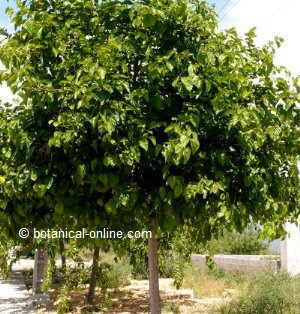
Photo of mulberry, broad-leafed tree with large leaves, which provides much shade in summer.
Mulberries have a high nutritional and medicinal value. They stand out because they contain few calories and few carbohydrates, compared to other fruits. Instead they concentrate many health-enhancing phytonutrients.
They are fruits rich in vitamin C (35 mg per 100g, a considerable amount). But what stands out most is its enormous amount of phenolic compounds and antioxidants.
It provides tartaric acid, malic acid and gallic acid (1,422 mg of gallic acid per 100 g).
Among its flavonoids, there is quercetin (276 mg per 100 g) and resveratrol (a component that protects the health of the heart. It abounds in grapes).
These components have astringent, anti-inflammatory and antiseptic properties.
| Nutritional composition of black mulberries (Morus nigra) per 100g. | |
| Nutrient | Amount |
| Calories (Kcal.) | 43 |
| Carbohydrates (g.) | 9,8 |
| Proteins (g.) | 1,44 |
| Fats (g.) | 0,39 |
| Fiber (g.) | 1,7 |
| Vitamin E (mcg. eq. retinol) | 0,45 |
| Vitamin C (mg.) | 36,4 |
| Calcium (mg.) | 39 |
| Magnesium (mg.) | 18 |
| Potassium (mg.) | 194 |
| Iron (mg.) | 1,85 |
Benefits of mulberries for health
- Mulberries are very rich in vitamin C, anthocyanins and flavonoids like quercetin. These components, very antioxidant, prevent the oxidation of fats, preventing arteriosclerosis and helping to improve heart health.
- Anthocyanins protect retinal capillaries and provide natural protection for vision health. People with tired eyes spend many hours in front of the screen, with conjunctivitis or glaucoma are advised to eat mulberries.
- With mulberries a syrup is prepared, consisting of boiling 1 liter of blackberry juice with 2 liters of honey This syrup, sweet and slightly acid, has been used since antiquity as a natural remedy.
- The blackberry syrup is very astringent, leaves a rough sensation in the mouth (dry secretions), has antiinflammatory properties, hemostatic (stops bleeding) and antiseptic, being very effective against the pain of teeth, bleeding gums, sorethroat and ulcers in the mouth. Galen considered mulberry fruits suitable to treat the affections of the mouth.
- Due to its antiseptic and antiinflammatory action, mulberry jam is also adequate against infections and inflammations of the lungs, colds, bronchitis and cough.
- The astringency of blackberry syrup dries secretions and treats diarrhea, helping to make less liquid stools.
- Blackberry juice is emollient, antiinflammatory and used to improve dermatitis, eczemas and rashes.
![]() More information on mulberry.
More information on mulberry.



